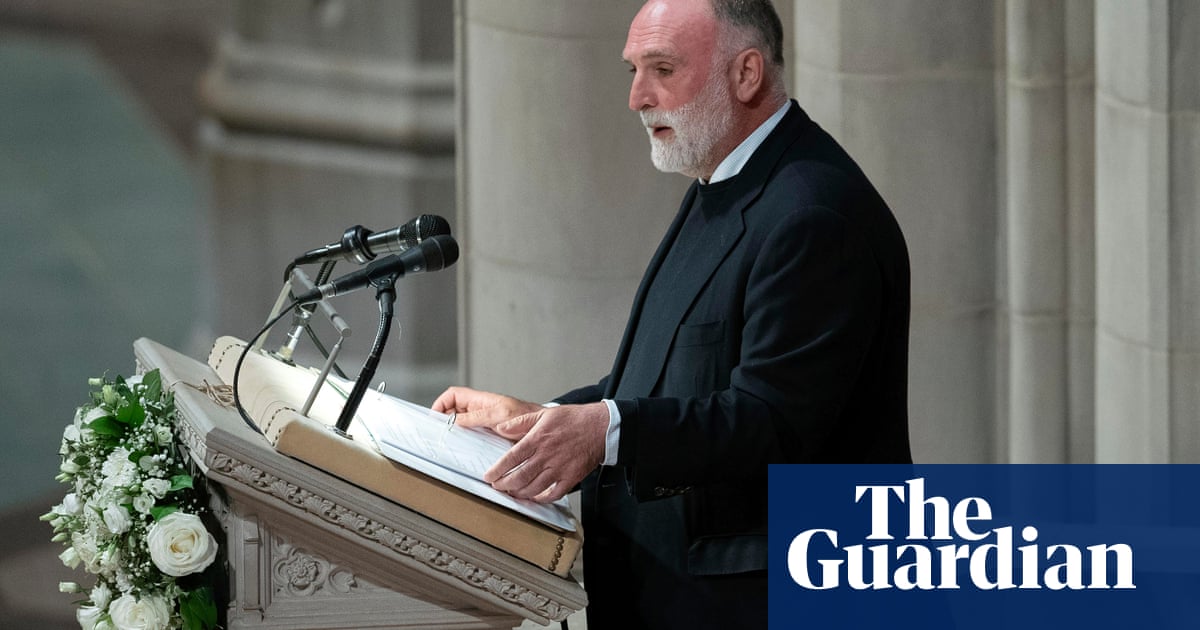World
‘Selfless and strong’: memorial honours World Central Kitchen aid workers killed in Gaza

The seven World Central Kitchen aid workers killed by Israeli airstrikes represented the “best of humanity” and risked everything “to feed people they did not know and will never meet,” José Andrés, the celebrity chef who founded the organisation, told mourners on Thursday.
Speaking at Washington National Cathedral to those gathered to honour the aid workers, Andrés said there was no excuse for the killings and renewed calls for an investigation into the deaths.
“The seven souls we mourn today were there so that hungry people could eat,” Andrés said, reading aloud their names: Palestinian Saifeddin Issam Ayad Abutaha; Britons John Chapman, James Kirby and James Henderson; dual US-Canadian citizen Jacob Flickinger; Australian Lalzawmi “Zomi” Frankcom; and Polish citizen Damiam Sobol.
“Their examples should inspire us to do better, to be better,” he said.
Chapman was “brave, selfless and strong” and had the ability to make people around him feel “loved and protected,” Andrés told the memorial.
Abutaha was an integral member of the team who was very close to his family, he said.
Flickinger was a problem-solver, “exactly what you need” in the chaos of a disaster zone, he continued. Frankcom, gave “joy to others even more than she gave food”.
Andrés spoke of how Henderson had taught first aid in Ukraine and was an avid rugby player.
He said Kirby, known to friends as “Kirbs” was driven to help people in need.
And he said how a town in Turkey had named a street after Sobol, in honour of his work there after an earthquake.
The seven workers were killed 1 April when strikes from Israeli armed drones ripped through vehicles in their convoy, as they left one of WCK’s warehouses on a food delivery mission.
After an investigation by Israel, authorities said the military officials involved in the attack had violated policy by acting based on a single grainy photo that one officer had contended – incorrectly – showed one of the seven workers was armed.
The Israeli military dismissed two officers and reprimanded three others.
“I know we all have many unanswered questions about what happened and why. There is no excuse for these killings,” Andrés told mourners. “The official explanation is not good enough.”
At times during the service, Andrés spoke emotionally about the organisation’s mission and why aid workers do what they do.
“We stand next to communities as they feed themselves, nourish themselves, heal themselves. People don’t want our pity. They want our respect. Our only way to show respect is facing the mayhem alongside them,” he said. “We remind them by showing up that they are not alone in the darkness.”
Douglas Emhoff, husband of US vice-president Kamala Harris, and Kurt Campbell, the deputy secretary of state, were among those at the event, along with diplomats from more than 30 countries.
Democrat Chris Van Hollen, one of the most active lawmakers pushing president Joe Biden for improved Israeli treatment of aid workers and Palestinian civilians, joined the mourners as a lone bagpiper played.
The aid workers, whose trip had been coordinated with Israeli officials, are among more than 220 humanitarian workers killed in the Israel-Hamas war that began 7 October, according to the UN. That includes at least 30 killed in the line of duty.
The international prominence and popularity of Andrés and his nonprofit work galvanised widespread outrage over the killings of the group’s workers.
The deaths intensified demands from the administration and others that Israel’s military change how it operates in Hamas-controlled Gaza to spare aid workers and Palestinian civilians in the territory, who are facing a humanitarian crisis, and desperately need aid from relief organizations as the UN warns of looming famine.
The US has confirmed troops have begun construction of a maritime pier off the coast of Gaza that aims to speed the flow of humanitarian aid into the territory but the complex plan to bring more desperately needed food to Palestinian civilians is still mired in fears over security and how the aid will be delivered.
WCK, along with several other humanitarian aid agencies, suspended work in the territory after the attack. “We haven’t given up,” WCK spokesperson Linda Roth said last week. “We are in funeral mode right now.”










